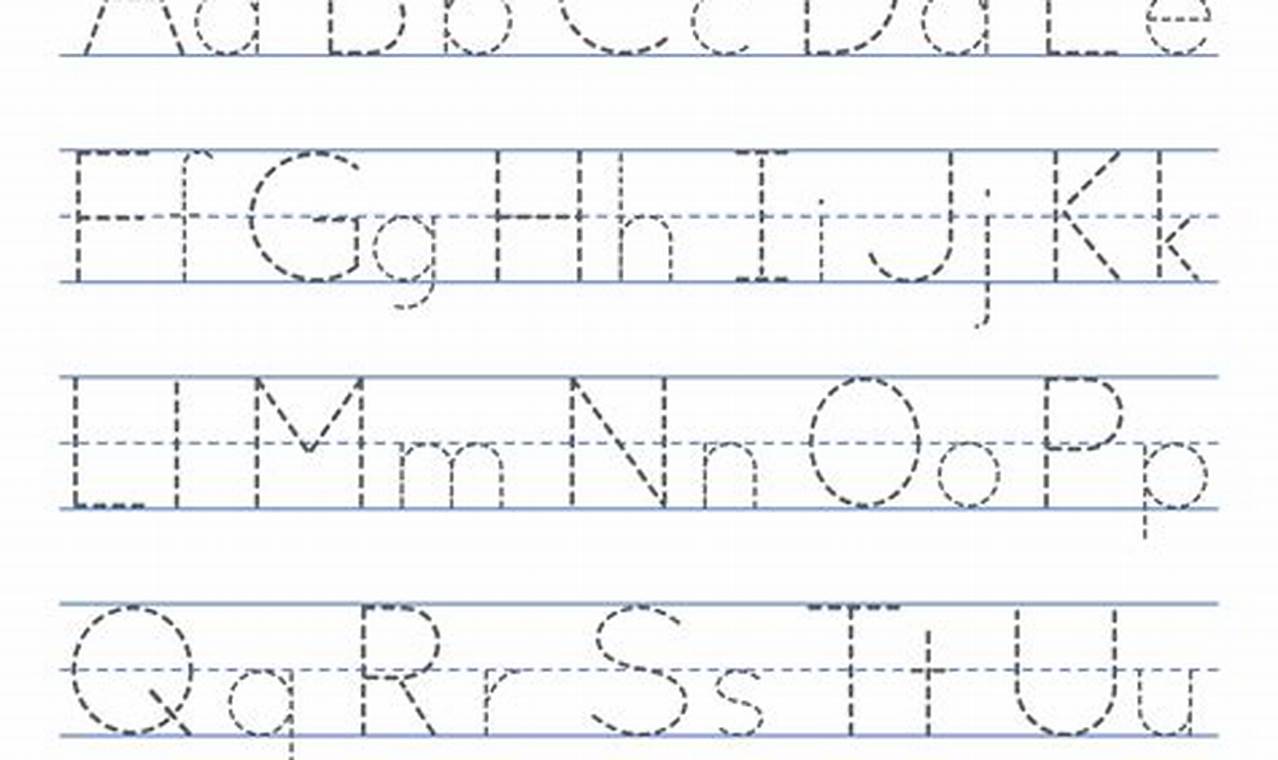Early literacy skills form the foundation for all future learning. Mastering the alphabet is a crucial step, and effective, routine practice significantly enhances a child’s ability to recognize and form letters. Worksheets designed specifically for alphabet tracing provide a structured and engaging method to develop these essential skills, setting children on a path to reading and writing success.
The benefits of using an “alphabet tracing for routine practice” worksheet are numerous. It enhances fine motor skills, improving hand-eye coordination and pencil control. Consistent tracing reinforces letter recognition, enabling children to quickly identify both uppercase and lowercase forms. Furthermore, the repetition inherent in tracing fosters memory and reinforces the correct formation of each letter.
This worksheet typically features all 26 letters of the alphabet, presented in a clear and easy-to-follow format. Each letter is displayed in a traceable font, often with directional arrows to guide proper stroke order. Ample space is provided for independent practice, allowing children to reinforce what they have learned through tracing. Some variations may include engaging illustrations associated with each letter to further enhance learning and enjoyment.
To maximize the effectiveness of this worksheet, it is important to create a supportive learning environment. The child should be seated comfortably at a table with good lighting. Provide a thick pencil or crayon that is easy to grip. Begin by demonstrating how to trace the first letter, emphasizing the correct stroke order. Encourage the child to trace each letter slowly and carefully, focusing on staying within the lines. Break the worksheet into smaller sections to avoid overwhelming the child, and offer positive reinforcement and praise for their efforts.
To supplement the benefits of the “alphabet tracing for routine practice” worksheet, consider incorporating other activities that reinforce letter recognition and formation. Exploring related worksheets on Kidtraces.com can provide additional practice opportunities. Interactive alphabet games, reading alphabet books aloud, and engaging in simple writing exercises can all contribute to a well-rounded early literacy program. Daily activities such as pointing out letters in the environment can also reinforce learning.
The “alphabet tracing for routine practice” worksheet offers a valuable tool for developing essential early literacy skills. By providing a structured and engaging format for letter recognition and formation, it helps children build a strong foundation for reading and writing. Download this worksheet today and encourage continuous learning by exploring the diverse range of free educational resources available on Kidtraces.com.
